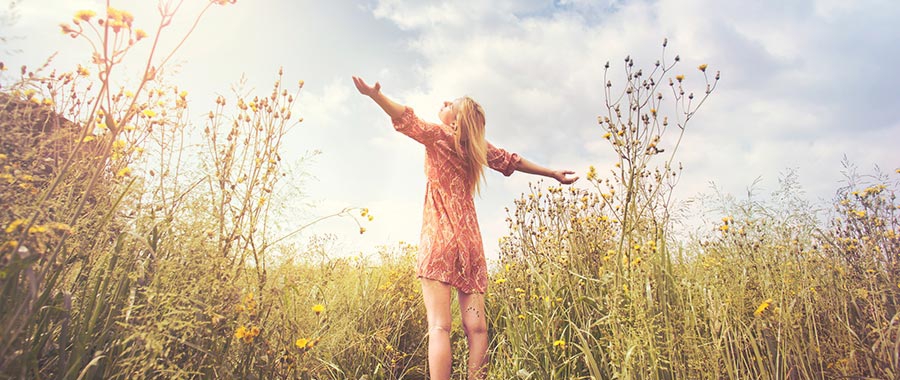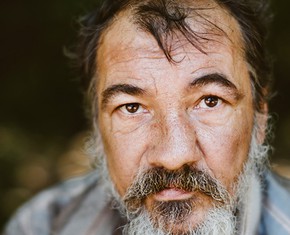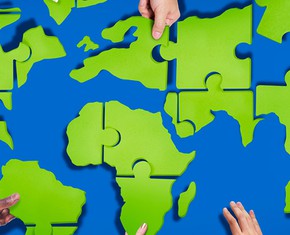The views expressed in our content reflect individual perspectives and do not represent the authoritative views of the Baha'i Faith.
My friend Audrey is a social worker. She supports people who have been forgotten or cast off in some way: people without homes, youth who’ve run away, elders who need care.
Over coffee one day, she said: “I’ve been thinking a lot about the power of story – about bearing witness to what God is doing, right now, in the world …”
So many efforts are underway to share lives that have rarely been seen or heard. The Women’s Voices Project, Mavash Savet’s Prison Poems, books like SEE ME: Up Close with NYC’s Homeless Youth, and films like US & THEM, manifest an original song, embodied in each of us:
Boundless material wealth, free political organization, immense geographic area, and unprecedented ‘business’ and products … will not place this Commonwealth of ours on the topmost range of history and humanity …[We need] a great native Literature headed with a Poetry stronger and sweeter than any yet. If there can be any such thing as a kosmic modern and original song, America needs it, and is worthy of it. – Walt Whitman
Let me repeat that: We need a poetry stronger and sweeter than any yet born. Say goodbye to everything you thought you knew about poetry: school learning, flowery language, musty-smelling books. I want to upend this understanding and call out the poet hidden in each of us. Because beneath the drive to survive is a lifesong sweet and strong and longing to be freed.
Poet means Maker. The word draws from Latin, Greek, Sanskrit and Slavonic roots: to build, to make, to act, to order. These are powerful, active verbs–verbs we associate with other professions, like architects, lawyers, and politicians. Can a poet be a maker of justice, a builder of community, a forger of love? Yes, the Baha’i teachings say:
Treasures lie hidden beneath the throne of God. The key to those treasures is the tongue of poets. – The Bab, quoting an ancient tradition in Nabil’s The Dawnbreakers, pp. 258-259.
May your souls be illumined by the light of the Words of God, and may you become repositories of the mysteries of God, for no comfort is greater and no happiness is sweeter than spiritual comprehension of the divine teachings. If a man understands the real meaning of a poet’s verses such as those of Shakespeare, he is pleased and rejoiced. How much greater his joy and pleasure when he perceives the reality of the Holy Scriptures and becomes informed of the mysteries of the Kingdom! – Abdu’l-Baha, The Promulgation of Universal Peace, p. 460.
So let’s expand the definition of poetry and call it “a visionary act of creation.” Poets act on insight – which makes Albert Einstein a poet, alongside Leonardo da Vinci, Marion Wright Edelman, Patricia Locke, and Rachel Carson. These women and men saw something no one else could see. Like the prophets of God, they envisioned a new creation. They wanted to unlock the universe, expand wonder, and preserve life, from the smallest songbird to the neglected child:
One way to open your eyes is to ask yourself, ‘What if I had never seen this before? What if I knew I would never see it again?’ – Rachel Carson.
Poetry grows like flame trees through sidewalk cracks: sheltering, brilliant, and unexpected. It thrives on the margins, the edges, where cultures create friction and make sparks. At the same time, poetry tugs us closer to our thumping heart, urging us to ask: How can we live from the center, the source?
Poetry collapses the distance between “us” and “them.” I remember visiting the separation zone between Israel and the West Bank. After the wall was erected, color blossomed across its gray face. Spray-paint protests and slogans may not be poetry in the strict sense, but they are poetic messages in a universal tongue: We are people, listen to us, we seek freedom too.
The same phenomenon can be found along the Mexico-US border – acts of incredible beauty and reciprocity exist alongside danger and death. A group of women called Las Patronas cook, bag, and deliver daily meals to migrants riding on top of The Beast, a northbound train. The women stand by the tracks, throwing food to the men, who lean off the passing train, shouting Gracias! Thanks…
In a dream, artist JR saw a child peering over the border fence separating the US and Mexico. This dream-vision prompted a real work of art – and launched a conversation about protecting children, no matter their legal status.
The philosopher Heidegger called a boundary “that from which something begins its presencing.” Presence is often missing in our distracted, overwhelmed world. Poetry lassoes our drifting minds and adrift societies to something real: a child, a meal, a dream. Poetry shows us that the boundary is nothing to be frightened of. It is the place of encounter, the threshold we press our foreheads against, speechless and washed in mystery.
I return to Audrey’s question. What is God doing, right now, in the world? How can we bear witness to that “kosmic and original song”? No one can fully answer those questions. The beauty in asking is simply to swim in the vastness. I have no idea what God – that Unknowable Essence – is doing. But I read the Words of the prophets, and learn from visions that flash unbidden into my mind.
The sense I get is: Now is the time for the deepest work you have ever done. Each of us is going on an inner pilgrimage and quest for life itself. For me, this means reflecting on everything, questioning everything – every belief, relationship, stick of furniture. What is true? What can I shake free from, to let my branches reach naked toward the light?
In quiet, alone moments, I unwind the bandages separating my tender truth from the sharp gaze of critique – my own, as much as anyone else’s. I wash my face and watch the mascara drain away. A pale moon blinks at me from the bathroom mirror.
Who are you, face I know so well?
You want, so much, to ring the bells and sound the trumpets and announce to the people: Life has arrived! Life is here. Not the prolongation of suffering. Not damnation, not judgement. Life. But we have to go to our beautiful, dammed depths to get there.
The inner levees must break.
This is terrifying. So much of what we know will be swept away.
But in the confusion, in the tears, in the death-defying laughter, there is hope. Old habits and horrors can fade. A new existence is possible. Poetry is what happens when life is being re-forged.
You May Also Like
Comments

















You do not have to walk on your knees
For a hundred miles through the desert, repenting.
You only have to let the soft animal of your body
love what it loves."
Mary Oliver
You do not have to walk on your knees
For a hundred miles through the desert, repenting.
You only have to let the soft animal of your body
love what it loves."
Mary Oliver
Beauty is the breath of the Divine,
the return of the human soul
into the eternal homeland:
do you remember the palace of light?
The wings of love carry us home
in the blink of an eye.
Every moment of beauty
is a homecoming.